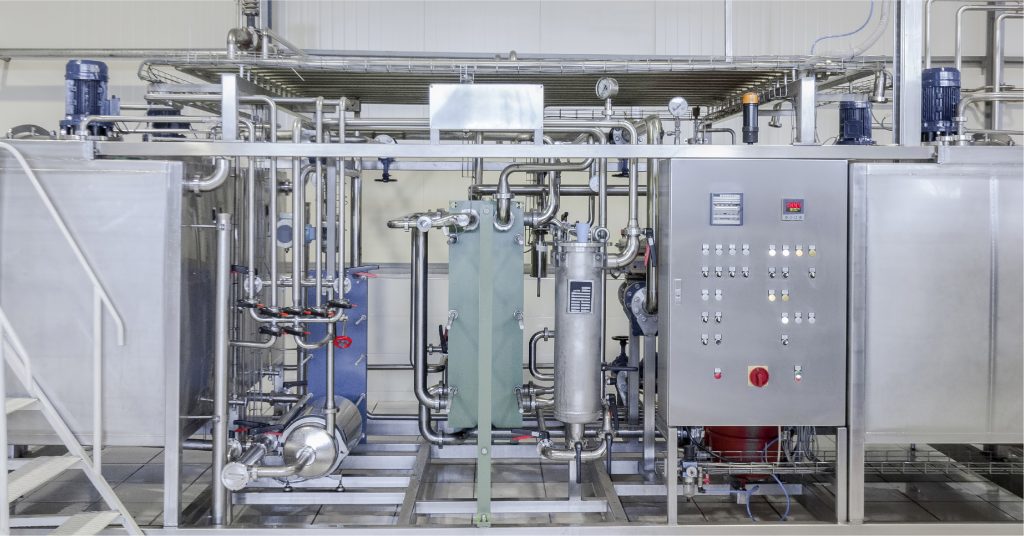Water purification is an essential concern in Bangladesh, a country where access to clean and safe water remains a significant challenge due to various environmental and industrial factors. The demand for reliable and efficient water treatment solutions has grown, particularly in commercial and industrial sectors. One of the most effective technologies for addressing these challenges is reverse osmosis. This process is critical in providing high-quality water for various applications, from industrial processes to drinking water. This blog will explore how commercial reverse osmosis systems work, their significance in Bangladesh, and the key differences between reverse osmosis and other water purification methods such as distillation.
Understanding Reverse Osmosis: The Core of Water Purification
Reverse osmosis is a water purification process that removes contaminants by forcing water through a semi-permeable membrane. The membrane allows only water molecules to pass through while blocking larger molecules, such as salts, bacteria, and other impurities. This results in highly purified water that is free from a wide range of contaminants, making it suitable for various uses.
Functionality of a Commercial Reverse Osmosis Machine
A commercial reverse osmosis machine operates on the same basic principles as a residential reverse osmosis system but is designed to handle larger volumes of water and higher levels of contamination. These machines are equipped with more robust components and are often modular, allowing them to be scaled up or down based on the specific needs of the application.
A commercial reverse osmosis machine begins with the pre-treatment of water, where large particles, chlorine, and other chemicals are removed to protect the reverse osmosis membrane. The pre-treated water is then pumped under high pressure into the reverse osmosis membrane, where the filtration process occurs. The purified water is collected on one side of the membrane, while the rejected contaminants are flushed away as wastewater.
In Bangladesh, commercial reverse osmosis machines are widely used in industries such as food and beverage production, pharmaceuticals, electronics manufacturing, and textiles. These industries require highly purified water for their processes, making reverse osmosis an essential technology. Additionally, commercial reverse osmosis machines are used in hotels, hospitals, and large residential complexes to provide safe drinking water.
Double Reverse Osmosis: Maximizing Purification Efficiency
Double reverse osmosis is a variation of the standard reverse osmosis process that involves passing the water through two reverse osmosis membranes instead of one. This method is used to achieve even higher levels of water purity, which is essential for certain industrial applications where the presence of even trace amounts of contaminants can affect the quality of the final product.
Commercial Reverse Osmosis: A Sustainable Solution for Bangladesh
Commercial reverse osmosis systems offer a sustainable solution for water purification in Bangladesh. These systems are highly efficient, require minimal energy, and produce large volumes of purified water, making them ideal for commercial and industrial applications. In a country where access to clean water is a growing concern, commercial reverse osmosis systems provide a reliable and cost-effective way to ensure a continuous supply of safe water.
The environmental benefits of commercial reverse osmosis systems are also significant. By reducing the reliance on traditional water treatment methods that are more energy-intensive and less efficient, reverse osmosis helps to lower the carbon footprint of water purification processes. Additionally, the ability to desalinate seawater using reverse osmosis provides a sustainable solution for coastal communities in Bangladesh, where freshwater resources are scarce.
How Ion Exchange’s Reverse Osmosis Systems Operate
INDION PF/DT Reverse Osmosis System
Ion Exchange, a pioneer in water treatment, offers the advanced Indion PF/DT Reverse Osmosis System, specifically designed to treat water from complex alternate sources, making it suitable for both drinking and industrial applications. Utilizing flat-sheet membrane technology, this system efficiently processes complex water with minimal pretreatment and a compact footprint. The result is water with very low dissolved solids, free from particulates, colloids, and organic matter.
Key features of the system include:
- Inline dosing provision, inbuilt clean-in-place (CIP) functionality for periodic membrane cleaning.
- Automatic and manual control options for the entire reverse osmosis (RO) plant.
- Safety is enhanced with built-in protections such as dry run and overload prevention, while an onscreen simulation provides complete operational visibility and fault indication.
- The system also boasts high-pressure capabilities to maximize recovery, supports zero liquid discharge (ZLD) to reduce life cycle costs, and offers reusable treated water.
- Its modular design, smaller footprint, upgradeability, and easy access to spares and services with short delivery periods further enhance its value in water treatment applications.
Benefits:
- Requires minimal pretreatment with the use of INDION Multigrad Filter (MGF) and INDION Cartridge Filter (CF).
- Cost-effective membrane replacement.
- Achieves up to 95% removal of total dissolved solids (TDS) with efficient management of TDS fluctuations.
Conclusion
Commercial reverse osmosis systems play a crucial role in addressing the water purification needs of Bangladesh. From industrial applications to providing safe drinking water, these systems are essential for ensuring access to clean water in a country where water quality challenges are prevalent. Understanding how reverse osmosis works, the benefits of double reverse osmosis, and the differences between reverse osmosis and distillation is key to making informed decisions about water treatment.


